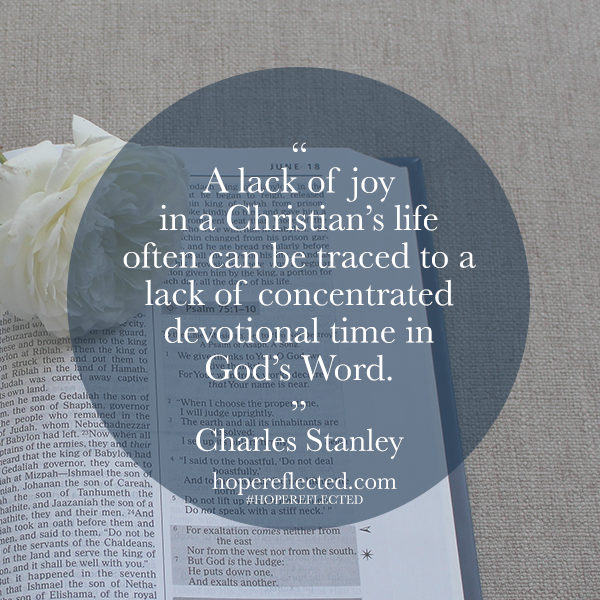20 Life Lessons I Learned in 2016
Written by H, Posted in Christian Living, Published Work
It’s that time of year again! One thing I always love to do at the end of the year is to take time to reflect back on the time that’s just passed, and to look forward to applying what I learned in the New Year ahead. 2016 was a year filled with many answered prayers, challenges, encouragement, and also some important life hacks learned (and re-learned). With this in mind, I’m happy to share with you 20 Life Lessons I Learned in 2016:
- Remember to rest. “Rest in the LORD, and wait patiently for him:” (Psalm 37:7a) I’ve been learning the lesson of “remember to rest” for most of my adult life. Ever since Carl Honoré’s “In Praise of Slowness,” I find myself yearning more and more for the slow life. Not just “taking”, but making time to rest – to turn off my phone, to eat dinner around the table, to make eye contact, to enjoy a fulfilled life with the ones I love – rest is a constant education, one that must be studied and practiced. When I purpose to rest in the LORD, only He can give me rest from life’s trials, personal problems, and work.
- To be successful, you need a strategy. “The thoughts of the diligent tend only to plenteousness; but of every one that is hasty only to want.” (Proverbs 21:5) Part of a winning strategy involves learning to the patient, being open to change, and being prayerful in your direction and decisions. As King Solomon said in Proverbs 13:16, “Every prudent man acts with knowledge.” No war was ever won without a solid strategy.
- A little encouragement can go a long way. “Bless the LORD, O my soul, and forget not all His benefits.” (Psalm 103:2) When you’re discouraged, there are a few easy ways to bring yourself out of that rut: Count your blessings. Go for a walk. Buy someone (or yourself!) flowers. Get into God’s Word. Smile at someone. Remember, a candle loses nothing by lighting another candle.
- The emotion of anger is a fact of life; while it can’t be avoided, it can be remedied. “…be quick to listen, slow to speak, and slow to anger.” (James 1:19) A moment of patience in a moment of anger saves you a hundred moments of regret.
- There’s a Bible verse for that. “Thy word have I hid in mine heart,” (Psalm 119:11) When you’re anxious, afraid, sad, apathetic, bitter, or impatient, God’s Word is filled with encouraging verses about peace, courage, comfort, happiness, joy, love, forgiveness, and patience. Just open it!
- Faithfulness is important, even in the little things. “It is of the LORD’s mercies that we are not consumed, because his compassions fail not. They are new every morning: great is thy faithfulness.” (Lamentations 3:22-23) Faithfulness is a virtue that can be developed prayerfully and with good habits. Faithfulness is important in every aspect of our lives, whether relationally, professionally, or financially.
- Bad habits can be beat. “A little leaven leaveneth the whole lump.” (Galatians 5:9) Just like weeds in a garden, bad habits have a tendency to spread – and stick. Bad habits can be beat when you choose to be accountable, pray specifically, and believe you can overcome your bad habits. Bad habits can be beat with God’s help!
- Practicing patience is worth the wait. “Be patient, bearing with one another in love.” (Ephesians 4:2) Planting a seed requires patience and time (which Tolstoy said are the two most powerful warriors). Patience requires rest, the right heart, and a whole lot of humility, and in the end, it’s totally worth it. As Elisabeth Elliot said, “Don’t dig up in doubt what you planted in faith.” Patience can be accomplished, one day at a time.
- Don’t judge a book by its cover. “But the LORD said unto Samuel, Look not on his countenance, or on the height of his stature; because I have refused him: for the LORD seeth not as man seeth, for man looketh on the outward appearance, but the LORD looketh on the heart.” (1 Samuel 16:7) Consider an iceberg: What we see on the surface is only about 10% of the whole iceberg; the other 90%, the greater mass, lies beneath the waters. This is an important lesson to remember when we look at one another.
- When it comes to devotions, the important part is getting started. “Be still, and know that I am God.” (Psalm 46:10) Take the time to get into God’s Word. Just like the saying “six pack abs start in the kitchen,” a strong spiritual life starts in the Bible. Open your Bible, even if it’s just a Proverb a day, seek God, and ask Him to speak to your heart. The benefits will be eternal.
- Make time to pray. Everyday. “Pray without ceasing.” (1 Thessalonians 5:17) There are plenty of habits you can develop throughout this life, and one that’s worth practicing is prayer. God is powerful, and we have direct access to Him, whenever, wherever, and about whatever. Carve out time each day to pray, and remember throughout the day to pray for people you encounter and to praise Him for the little victories and blessings that come your way.
- God created you to be you. “…even the very hairs of your head are all numbered. Fear not therefore: ye are of more value than many sparrows.” (Luke 12:7) God knows the exact amount of how many (or how few) hairs are on your head, and you can rest assured that He created you for a purpose that only you can accomplish and fulfill. I need this reminder daily!
- God is faithful and merciful. “For thou, Lord, art good, and ready to forgive; and plenteous in mercy unto all them that call upon thee.” (Psalm 86:5) A great way to remember God’s faithfulness and mercy is to keep a prayer journal – Wes and I keep note of prayer requests and praises, and it’s nothing short of AMAZING to go back and look through all of our answered prayers. This is especially encouraging when we’re feeling down or like things aren’t going our way. God is faithful and His mercies are new every morning!
- God is gracious. “For by grace you have been saved through faith. And this is not your own doing; it is the gift of God.” (Ephesians 2:8) Read: God gives us what we don’t deserve. He loves to shower His people with goodness and gifts that are exceeding abundantly above all we can ask or think.
- Put things in perspective. “The fear of the LORD is the beginning of wisdom:” (Proverbs 9:10) Sometimes I get so caught up with to-do lists and being busy that I need a reality check when it comes to setting priorities and what’s truly important – don’t we all? When we have a correct understanding of the fear of the Lord, it makes it easier to remember (easier, not always easy), that whatever we’re facing in front of us is never bigger than the God inside us.
- There is always hope. “In the day of prosperity be joyful, but in the day of adversity consider; God also hath set one over against the other, to the end that man should find nothing after him.” (Ecclesiastes 7:14) When you face adversity, ask the Lord what He’s trying to teach you, remind yourself that God is in complete control, and remember that there is always hope. C.S. Lewis once said, “Hardships often prepare ordinary people for an extraordinary destiny.”
- Disappointments are inevitable; discouragement is a choice. “Why are you cast down, O my soul? And why are you disquieted within me? Hope in God; for I shall yet praise Him, the help of my countenance and my God.” (Psalm 42:11) You’re not alone if experience a day – or two, or three, or hey, maybe even an entire week, – of disappointment. Life happens to all of us! The key is in how we handle it.
- Choose faith over fear. “Faith is the substance of things hoped for, the evidence of things not seen.” (Hebrews 11:1) One of the realities of life is that we will all face seasons of change. Many thoughts can run through our minds when embarking on a new journey, and it’s in those times of uncertainty that we all need to be reminded to choose faith over fear. Bob Proctor said it like this: “Faith and fear both demand you believe in something you cannot see. You choose!”
- We all need a firm foundation. “…remove not the ancient landmark, which thy fathers have set.” (Proverbs 22:28) When we start messing around with our foundations, structures shift. And an unsteady structure is not a safe structure. Having a firm foundation for what you believe is important because when storms come and your beliefs are tested – your foundation is your core!
- Less is more. “Better is little with the fear of the LORD than great treasure and trouble therewith.” (Proverbs 15:16) G.K. Chesterton said, “There are two ways to get enough. One is to accumulate more, and the other is to desire less.” Too often we look to fulfill our longings with things. Fulfillment doesn’t come from any amount of “stuff” that you accumulate; it comes from God. “It is not happy people who are thankful; it is thankful people who are happy.” Remember to practice an attitude of gratitude!












![False friends or counterfeit kindness; whatever you want to call it, the world is filled with people who will say one thing to your face and then another behind your back; people who will woo you in order to get something from you.
It’s sad, but it’s true.
The Bible provides us with examples from Joab to Judas, and yet, we’re surprised when we find ourselves deceived and hurt by someone else.
So what are some of the hallmarks of a true friend?
You can read more about this on hopereflected.com [Link in profile]
.
.
.
#friends #friendship #kindness #counterfeitkindness #hurt #proverbs #truefriends #hopereflected #blog #blogpost](https://www.hopereflected.com/wp-content/plugins/instagram-feed/img/placeholder.png)